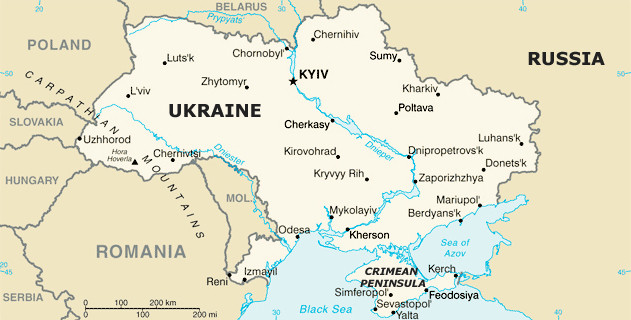Putin’s Peace Offensive on Ukraine Means Situation is ‘Really Dangerous,’ Piontkovsky Says

(Paul Goble – Window on Eurasia – Staunton, June 29, 2015)
Vladimir Putin’s “peace offensive,” marked by his call to US President Barack Obama, means that the situation is becoming “really dangerous,” Andrey Piontkovsky says, because the Kremlin leader has not changed his goal of destroying Ukraine as a state but only the means he is prepared to use to get there.
And those means, including his oft-repeated commitment to maintaining the territorial integrity of Ukraine “minus Crimea of course,” include the insertion of a cancerous tumor within the boundaries of that country and the election of pro-Russian candidates to the Verkhovna Rada, may be even more dangerous than a direct military attack.
That is because, the Russian analyst says, many in Ukraine and even more in the West are tired of the conflict and will be likely to drop their guard against such tactics, believing that they constitute a Ukrainian victory and a Russian defeat rather than simply another change in how Putin is seeking to get what he wants (kasparov.ru/material.php?id=5591360521CE8).
“A year ago,” Piontkovsky says, “Putin seriously considered the ‘Novorossiya’ project: the annexation of 10 or 12 Ukrainian regions. But the project failed” because it wasn’t supported by Russian-speakers in Ukraine. Despite Putin’s expectations, they “turned out to be patriots of the Ukrainian state.”
Now that the West has made it clear that it will react to any massive use of force, “for the overwhelming majority of the Russian establishment, military excalation is excluded because they understand that the price, including for them personally would be very large,” and they do not want to pay it.
As far as Putin himself is concerned, he “is forced to take this attitude into consideration but it is impossible to exclude insane actions on his part” because as Chancellor Merkel said, “he lives in another reality.” But for the timing being, the Kremlin has changed its strategy but not its goal.
Putin’s strategy now consists of supporting nominally the territorial integrity of Ukraine but using “his own interpretation of the Minsk agreements,” an interpretation in which he will never withdraw Russian forces even as he continues to deny that they are within the borders of Ukraine.
According to Piontkovsky, the Kremlin leader is seeking to impose his interpretation of the Minsk accords on Ukraine by means of a diplomatic offensive. He has managed to get some in Germany and France to go along, but Ukraine has rejected the pressure they have put on Kyiv to agree. And so too has the United States.
But Putin hasn’t given up on Barack Obama and is trying to win him over with the old refrain that “without Moscow, it is iimpossible to resolve any world problems like nuclear proliferation, Syria, ISIS.” Translated into real language, Putin is saying “allow us to quietly rape Ukraine and we will take a constructive position” on other issues. So far he has failed in Washington.
Putin is also cleverly using the latest round of terrorist attacks, Piontkovsky observes. “These terrorist acts always work to the benefit of Kremlin propaganda … after each major one, all the Putin agentura in the West begins to spread the word: ‘Forget about this Ukraine. For us, the struggle with Islamic terrorism is much more important, and without Moscow’s support we will not be able to do anything.'”
The timing of this peace offensive corresponds to the seizure of Russian assets in the West and the Dutch tribunal on the shooting down of the Malaysian aircraft, Piontkovsky continues. These things worry many in the Russian elite; “they want to somehow stop the wave of sanctions” and so the Kremlin has launched a peace offensive.
And the leaking of the faked Russian military plans for an attack on Ukraine are “part of ‘the peace offensive’ of the Kremlin,” its way of reminding everyone that unless the West and Ukraine cave, there are those in Russia who favor a more muscular set of actions and consequently those offering peace should be supported.
“A rat driven into a corner is capable of an act of desperation,” and so too is Putin, the Russian analyst says. On the one hand, those around him are worried about their self-preservation and ever less attracted to Putin’s vision. But on the other, Putin may act despite what others think.
This situation can’t last for long: any attack would have to begin soon to take advantage of the weather; and consequently, Piontkovsky argues, Putin will have to make “a certain political and existential choice” about what they are going to do very soon, certainly in the course of this summer.
While Putin and the war party could come out on top, Piontkovsky concludes, the chances of that are no more than ten to fifteen percent. And that is yet another reason for Ukraine and the West to take a tough line and to make clear to Putin how much he and Russia have to lose by making the wrong choices.
Article also appeared at windowoneurasia2.blogspot.com/2015/06/putins-peace-offensive-on-ukraine-means.html
